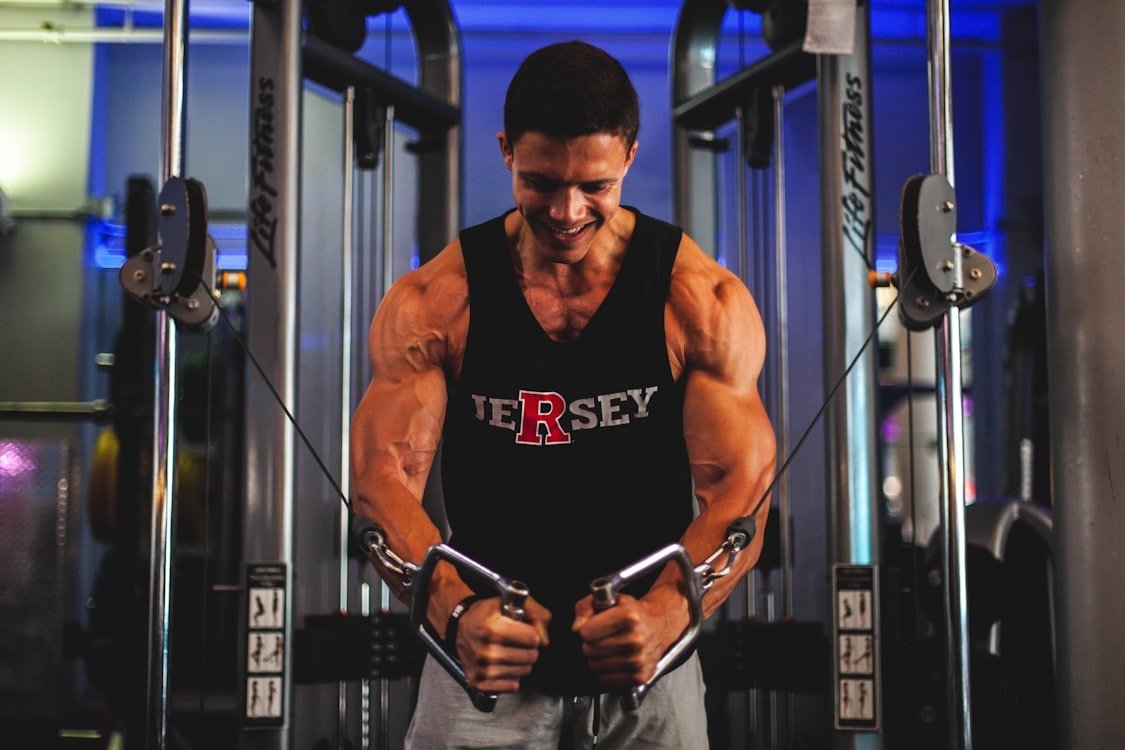Best Dietary Habits for Lasting Energy and Wellness

Table of Contents
- The Science of Food and Energy
- Balanced Macronutrient Intake for Steady Energy
- Personalizing Your Energy-Optimized Diet
- Wrap-up
- Common Questions About Diet and Energy
The Science of Food and Energy
Did you know your body is like a car that runs on food instead of gas? The food you eat gets broken down into tiny energy packets that power everything from your heartbeat to your dance moves. Let's take a closer look at how this works.
Your body uses three main types of nutrients for energy:
- Carbohydrates: Quick energy, like kindling for a fire
- Proteins: Slow-burning fuel that helps build and repair
- Fats: Long-lasting energy storage, like logs on a fire
These nutrients go through different processes in your body to become usable energy. It's like a tiny factory inside you, turning food into power. The way your body handles food can make a big difference in how you feel throughout the day.
Everyone's energy needs are a bit different. Things that can affect how much energy you need include:
- How active you are
- Your age and gender
- How much muscle you have
- Even the weather!
Understanding these basics can help you make better food choices. It's not just about eating less or more, but eating smart. The right mix of foods can keep you feeling energized all day long.
| Nutrient | Energy per gram | How fast it's used |
|---|---|---|
| Carbohydrates | 4 calories | Quick |
| Proteins | 4 calories | Medium |
| Fats | 9 calories | Slow |
At Caleyo Wellness, we look at your unique energy needs. Our nutrition counseling helps you find the right balance of foods to keep you going strong. It's not about following a strict diet, but about finding what works best for your body and lifestyle.
Balanced Macronutrient Intake for Steady Energy
Ever feel like you're on an energy rollercoaster? The secret to smooth sailing might be in your plate. Getting the right mix of proteins, carbs, and fats can make a big difference in how you feel throughout the day.
Let's break it down:
- Proteins: These are your body's building blocks. They help keep you full and your energy stable.
- Carbohydrates: Think of these as your quick energy source. But choose wisely - whole grains and veggies are your friends here.
- Fats: Don't skip these! Healthy fats help you feel satisfied and keep your brain sharp.
Now, you might be wondering about the perfect ratio. Truth is, it's not one-size-fits-all. But a good starting point is about 30% protein, 40% carbs, and 30% fat. Tweak this based on how you feel and what works for your body.
Timing matters too. Spread your meals out evenly during the day. This helps keep your blood sugar steady, which means no mid-afternoon crashes.
Quality Sources Matter
Where you get your macros from is just as important as how much you eat. Here's a quick guide:
| Macronutrient | Good Sources |
|---|---|
| Proteins | Lean meats, fish, eggs, beans |
| Carbohydrates | Whole grains, fruits, vegetables |
| Fats | Avocados, nuts, olive oil |
Remember, balance is key. Mix it up and listen to your body. It'll tell you what it needs.
Micronutrients Essential for Energy Production
While macros get a lot of attention, don't forget about the little guys - micronutrients. These vitamins and minerals are the unsung heroes of energy production.
Here are some key players:
- B-complex vitamins: These help turn food into energy. You can find them in whole grains, lean meats, and leafy greens.
- Iron: It helps carry oxygen to your cells. Low iron can leave you feeling wiped out.
- Magnesium: This mineral is involved in hundreds of bodily processes, including energy production.
Want to boost your micronutrient intake? Try adding these foods to your diet:
- Spinach (iron and magnesium)
- Salmon (B vitamins)
- Almonds (magnesium)
- Lentils (iron and B vitamins)
At Caleyo Wellness, our nutrition counseling can help you pinpoint any micronutrient gaps in your diet. We use advanced diagnostics to get a clear picture of your nutritional needs.
Meal Timing and Frequency for Consistent Energy
When you eat can be just as important as what you eat. Eating at regular intervals helps keep your blood sugar stable, which means steady energy throughout the day.
But how often should you eat? There's no magic number, but here's a general guide:
| Meal Pattern | Pros | Cons |
|---|---|---|
| 3 main meals | Simple, traditional | May lead to energy dips |
| 5-6 smaller meals | Steady energy, less hunger | Requires more planning |
| Intermittent fasting | May improve metabolism | Not suitable for everyone |
The best approach? It's the one you can stick to. Experiment and see what works for you.
Don't forget about strategic snacking. A small, balanced snack between meals can help prevent energy crashes. Think apple slices with almond butter or Greek yogurt with berries.
Remember, everyone's different. What works for your friend might not work for you. That's why at Caleyo Wellness, we offer personalized nutrition plans tailored to your unique needs and lifestyle. Our expert nutritional counseling can help you find the perfect balance for lasting energy throughout your day.
Personalizing Your Energy-Optimized Diet
When it comes to fueling your day, one size definitely doesn't fit all. Your energy needs are as unique as your fingerprint, shaped by factors like your activity level, metabolism, and even your sleep patterns.
Let's break down the key elements that influence your personal energy equation:
- Basal metabolic rate
- Daily activity level
- Stress levels
- Sleep quality
- Existing health conditions
Understanding these factors is crucial for tailoring a diet that keeps you energized from sunrise to sunset. But here's the catch - these factors can change over time, meaning your energy-optimized diet needs to evolve too.
Adapting your eating habits to your schedule is another piece of the puzzle. Consider this:
- Early risers might benefit from a protein-rich breakfast
- Night owls could need more frequent, smaller meals throughout the day
- Shift workers face unique challenges in maintaining steady energy levels
The complexity of personalizing your diet highlights why professional guidance can be a game-changer. At Caleyo Wellness, our nutrition counseling services dive deep into your individual needs, creating a roadmap for lasting energy that fits your lifestyle.
Remember, the goal isn't just to boost energy - it's to create sustainable habits that support your overall health. By taking a personalized approach, you're not just fueling your day; you're investing in your long-term wellbeing.
Key takeaway: Your ideal energy-boosting diet is as unique as you are. Professional guidance can help you navigate the complexities and find a sustainable approach that works for you.
Wrap-up
Eating smart isn't just about losing weight. It's about feeling good all day long. The foods we choose can make a big difference in our energy levels.
Remember, it's not about quick fixes. Small changes in what and when you eat can add up to big improvements in how you feel. Balancing your meals, staying hydrated, and snacking smart are key habits that can keep you going strong.
At Caleyo Wellness, we know that everyone's body is different. That's why our nutrition counseling focuses on finding the right energy-boosting diet for you. We look at your whole lifestyle to create a plan that fits.
Ready to take charge of your energy levels? Start with one small change today. Maybe swap that afternoon coffee for a handful of nuts. Or try eating a protein-rich breakfast tomorrow morning. Every step counts towards feeling your best.
Still have questions about fueling your body right? Don't worry - we've got answers coming up in our FAQ section. Let's keep exploring how to make your diet work for you, not against you.
Common Questions About Diet and Energy
What are the best foods for sustained energy?
Complex carbohydrates, lean proteins, and healthy fats are your best bets. Think whole grains, nuts, seeds, fruits, and vegetables. These foods release energy slowly, keeping you fueled throughout the day. At Caleyo Wellness, our nutrition counseling can help you create a personalized meal plan for optimal energy.
How can I avoid the afternoon energy slump?
To dodge that mid-day crash, try eating a balanced lunch with protein and complex carbs. Stay hydrated and take short breaks to move around. Snack on energy-boosting foods like almonds or an apple with peanut butter. Our dietitians can provide tailored advice to keep your energy steady all day.
Is caffeine good or bad for energy levels?
Caffeine can provide a quick energy boost, but too much can lead to crashes and jitters. Aim for moderate intake, preferably before 2 PM to avoid sleep disruption. If you're looking to optimize your caffeine consumption, our wellness experts can help you find the right balance.
What should I eat before a workout for energy?
A mix of carbs and protein about 1-2 hours before exercise works well. Try a banana with peanut butter or Greek yogurt with berries. These combos provide quick energy and help sustain you through your workout. For personalized pre-workout nutrition plans, consider booking a consultation with our team.
How does meal timing affect energy levels?
Eating regular, balanced meals helps maintain steady energy throughout the day. Aim for 3 main meals and 1-2 small snacks. Avoid large gaps between meals or overeating, which can cause energy dips. Our nutrition experts can help you create an eating schedule that fits your lifestyle and energy needs.
Can certain vitamins or supplements boost energy?
Some vitamins and minerals, like B-complex vitamins and iron, play crucial roles in energy production. However, it's best to get these nutrients from a balanced diet. If you're considering supplements, our healthcare providers can assess your needs and recommend safe, effective options tailored to your body's requirements.



